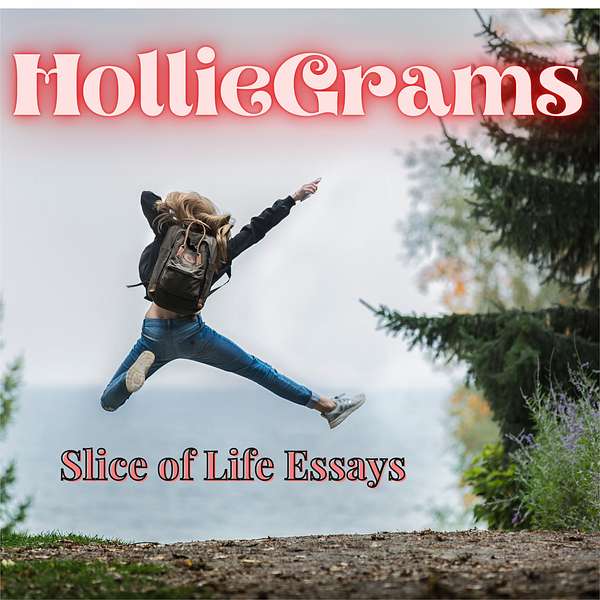
HollieGrams
HollieGrams
That time I was a "Miss"
Use Left/Right to seek, Home/End to jump to start or end. Hold shift to jump forward or backward.
I am about to celebrate a birthday, which made me think about age discrimination.
Find me at @holliesallwrite on Instagram @holliegramsFB on Facebook
In every episode:
Holliegrams are musings of my own take on local and world events, raising a family, relationships, health, aging, and community. They can be informative, inspiring, humourous, sad, thought-provoking, or just a pleasant way to begin your week.
This essay was originally published in The Union Newspaper
I still remember the first time it happened to me. I was at the local grocery store and the young man bagging my groceries was the first to say it out loud: “Ma’am, would you like some help out with your bags?” Ma’am? I turned around looking for whatever elderly woman he may have been speaking to, only to realize he meant …me! Ma’am? I was carting around a toddler for heaven’s sake? How could I have become a Ma’am so soon? I had been “miss” just moments before! It had happened, only in my mid thirties and the tide had begun to turn. No longer a “miss”, never a “MILF’ (ask your kids), forever more, a Ma’am.
Ma’am is how we address old women. It was just another slap in the face to my aging self. I had no idea the process would be so insidious. It begins with subtle changes. At first a thrill – not being asked for identification when ordering a cocktail at the local restaurant. But it soon becomes insulting, even hurtful - when no one asks for identification while trying to buy alcohol behind a sign that reads “if you look younger than thirty five, be prepared to show ID.” I had my driver’s license all ready to go when the clerk rang me up with a smile. Surely I don’t look 35 my 40 something self said out loud!
Aging in America is not a pretty thought. Aging in America as a woman is even uglier. I recognize I am not my grandmothers 50 something. Today’s baby boomers have worked hard to fight against the stereotypical old person. The current aging population is more active, educated and tech savvy. I am inspired by women two decades older who are actively contributing members to this community on a daily basis and show no signs of slowing down. But that does not mean they are not discriminated against.
Ageism is a word finding its way into our culture. According to Assisted Living Federation of America (a senior living advocacy group) “Ageism is a form of discrimination and prejudice, particularly experienced by seniors. Most seniors are mentally and physically active regardless of age with a great deal to contribute. However, societal norms marginalize seniors, treat them with disrespect, make them feel unwelcome and otherwise generalize as if they were all the same. For example:
- Late night comedians and talk show hosts joke about seniors and memory loss;
- Doctors often talk past the senior patient to an adult child as if the senior wasn’t even in the room;
- Commercial advertisements depict seniors as out of date, and lacking knowledge about modern culture and new technologies. “
The number of Americans 65 and older is projected to double over the next thirty years, comprising 20 percent of the population by 2030. This should help change the face of the elderly in media (or lack thereof) and our national tendency to discount and ignore people as they age.
NBCNEWS.com says “That ageism exists, in a society captivated by youth culture and taut-skinned good looks, is scarcely debatable. But as the oldest of the 77 million baby boomers approach their 60s, the elderly and their concerns will inevitably move higher on the national agenda.” Media needs to include active, healthy seniors and smart advertisers will market to this growing population.
As I age, I am coming to terms with the changes that have taken place not only physically, the skin on my upper arms that does not bounce back – unless I wave; the almost daily malady (my back, my shoulder, my knee) and just between you and me, breasts that have completely abandoned their post - but also socially – my friends and I used to command a room and heads would turn. Now heads turn and then turn away toward the new up and coming thirty something’s who are ready to take the reigns as leaders and innovators in our little towns.
I was sad to say goodbye to the young woman referred to as “miss” and am learning to embrace this older lady called “ma’am” As an senior friend said to me recently, “I don’t mind being called Ma’am. It means good manners. I love that they are so polite.” Hopefully the next generation will politely listen and recognize an older population full of wisdom and value rather than dismiss them based on societal prejudice . To that I will say, “ Yes, Ma’am.”